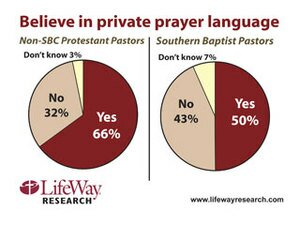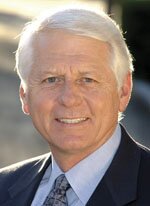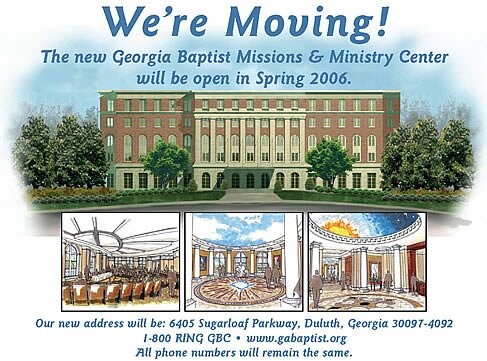The End of the Road: God Can Move Mountains
Things went well tonight. Dr. Akin, president of Southeastern Baptist Theological Seminary affirmed the vote on the sufficiency of the BF&M and promised to make sure that his seminary followed the will of the Convention. He also affirmed that what one believed on private prayer language was of no major importance, as long as they were not divisive. Amen. Ed Stetzer from Lifeway also gave a great message on our need to contend for the faith, contextualize the gospel, and cooperate with others that differ on minor issues. Amen, again. These two men showed leadership tonight, and if the SBC is to be saved, our leaders are going to have to step up and bring us out of this mess. It is time for them to do so.
As for me, I am now finished talking about SBC issues. I know that I have said that before, but I gave myself an exception for 3 events: The Baptist Conference on the Holy Spirit at Dwight McKissic's church, the IMB ad hoc committee report on tongues and baptism, and the build up to the SBC Annual Meeting in San Antonio this month. I was faithful to that promise and I will now return Downshoredrift to it's original purpose of chronicling where I see God at work in the world around me through Scripture, my family, my church, my community, current events, and thoughts on all types of issues. The SBC will no longer be a topic of discussion unless it just happens to intersect with one of those other areas in a significant way, no different than discussing an intersting event in another denomination. As for this blog, consider me a-denominational.
I care about the SBC and global missions, and because of that, I have written passionately about things that I believed in. I am glad for the stand that I have taken and believe that I am on the right side of history during this troubled time in the SBC. I believe that we have done some good and some changes have come. But, if other leaders do not step up and steer us in the right direction, then there is nothing worth saving in our denomination. It is now time for them to do so. As for me, I want to change the world, not just the SBC. I want to spend my time and energy trying to impact those who do not know Christ and strengthening those who do. I want to focus on my wife, my family, my church, and my community - not that I have neglected them, but I want to have the focus of my writing be local and personal much more than denominational. These things have gone on in my life all along, but it is time for this blog, if it is to continue, to reflect that focus completely. It is time to change.
I will be taking vacation and travelling a good deal between now and July 4th. During the summer, I will put up a post here and there about what is going on in my life and ministry, as well as observations on issues and interactions with Scripture, culture, missions, local issues, and biblical thoughts. I will also be regularly posting pictures of things I find beautiful and interesting. By mid-July, I will be taking down every post I've ever written on SBC issues. I'll save them for myself, but the posts and comments will be withdrawn. I will also take down my posts on the gifts of the Holy Spirit. That material will be available in another format at a future time, but it will not be available on this blog. I plan to redo my blog, change my links, blogroll, and focus. You can pretty much expect a complete overhaul of Downshoredrift.com by mid to late summer.
I only ever got into this because I wanted to hold a door open for people to go to the mission field who were otherwise qualified but were being denied service by the IMB. I felt that we were dealing with religious liberty issues and that if I didn't say something now, I would regret it forever. I felt that we should not divide over disputable tertiary doctrines, but we should unite around Christ and the essentials of the truth of Scripture and our articulated, agreed upon confession of faith. I felt like this was a major issue. Along the way, I have seen incredible abuses of power and outright corruption and carnality amongst those who are called leaders. It has been disillusioning. But, I know that God is on His Throne and that He is moving mountains that have stood in the way of His Gospel going to the ends of the earth. Things are changing in the SBC. I now want to lead out missionally instead of denominationally or politically. Keep coming to Downshoredrift if you are interested in how we can change things by living out our faith instead of fighting over it. If you are only interested in SBC politics, Downshoredrift will no longer be a place to satisfy that desire.
Have a great next few weeks. I am now headed for the beach and a much needed vacation with my family. I'll be back soon, but with a fresh focus. As we go, may Christ be glorified in all we say, think, and do.
Grace and Peace.






 Well, any casual reader of my blog knows that I am headed to San Antonio next week to attend the Southern Baptist Convention. I fly out early Monday morning and will not arrive until around noon on Monday. I'm staying near the airport where the rooms are cheap, but also where you have to drive forever to get to the Convention Center. I think I have a room near the Southwest hanger or something. And to think, some people have been complaining about their rooms . . . if I had only known the right people!
Well, any casual reader of my blog knows that I am headed to San Antonio next week to attend the Southern Baptist Convention. I fly out early Monday morning and will not arrive until around noon on Monday. I'm staying near the airport where the rooms are cheap, but also where you have to drive forever to get to the Convention Center. I think I have a room near the Southwest hanger or something. And to think, some people have been complaining about their rooms . . . if I had only known the right people!











 Yesterday, I ran across an interview that outgoing SBC President Dr. Bobby Welch gave after the convention in Greensboro (HT: John Stickley). As many of you know, there was a resolution that was passed against the consumption, use, manufacturing, and sale of alcoholic beverages. Obviously, every Baptist is against drunkeness and agrees with the Biblical prohibitions regarding that issue. That is not what the debate has been about. The debate has concerned whether it is permissable for a Christian to have even a glass of wine on a rare occasion. The resolutions says "No." Many have countered the resolution by pointing out that there is no Biblical injunction against having a small amount of alcohol in moderation and even Jesus turned water to wine. Anyway, it has been a big debate and I have been kind of bored by it because everyone just snipes at each other and no one really listens, it seems. I have tried to stay out of this debate to follow the admonition of
Yesterday, I ran across an interview that outgoing SBC President Dr. Bobby Welch gave after the convention in Greensboro (HT: John Stickley). As many of you know, there was a resolution that was passed against the consumption, use, manufacturing, and sale of alcoholic beverages. Obviously, every Baptist is against drunkeness and agrees with the Biblical prohibitions regarding that issue. That is not what the debate has been about. The debate has concerned whether it is permissable for a Christian to have even a glass of wine on a rare occasion. The resolutions says "No." Many have countered the resolution by pointing out that there is no Biblical injunction against having a small amount of alcohol in moderation and even Jesus turned water to wine. Anyway, it has been a big debate and I have been kind of bored by it because everyone just snipes at each other and no one really listens, it seems. I have tried to stay out of this debate to follow the admonition of 



 WARNING: This post contains insider Christian/Religious/Denominational stuff that might be harmful to your health, and or spiritual well being. Proceed at your own risk. I take no responsibility for heart burn or any other gastrointestinal maladies that might accompany the reading of this post.
WARNING: This post contains insider Christian/Religious/Denominational stuff that might be harmful to your health, and or spiritual well being. Proceed at your own risk. I take no responsibility for heart burn or any other gastrointestinal maladies that might accompany the reading of this post.




